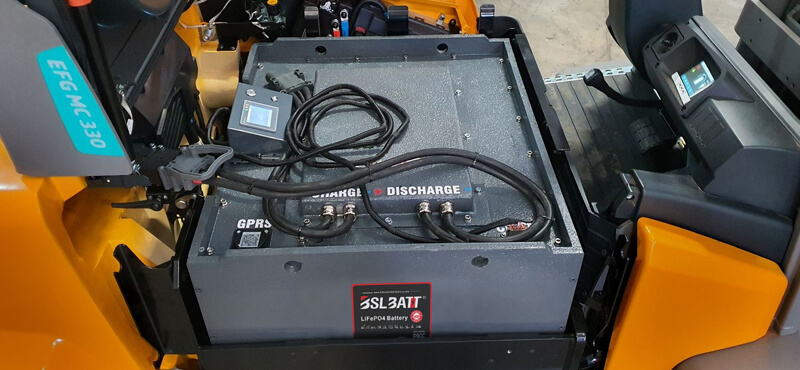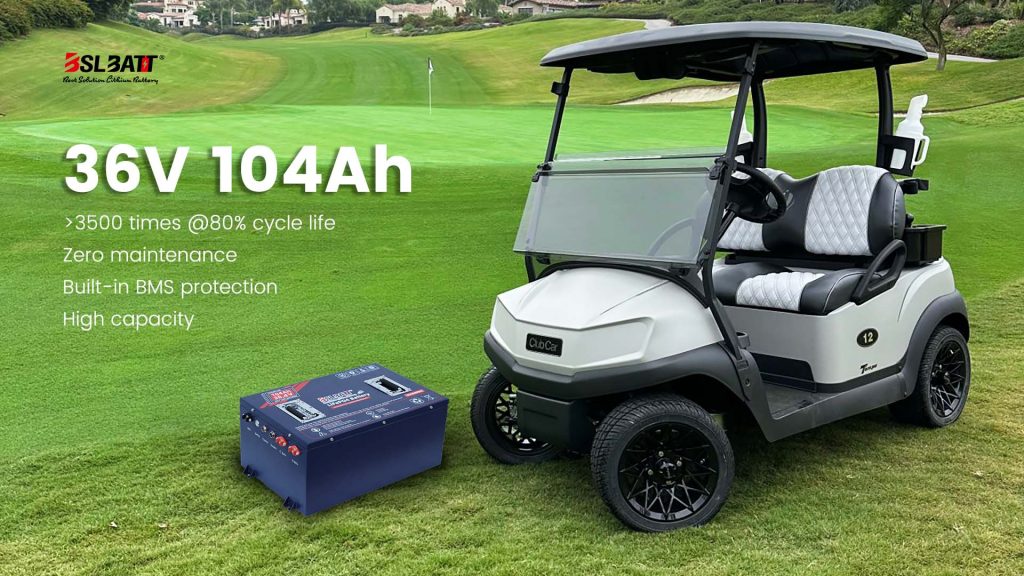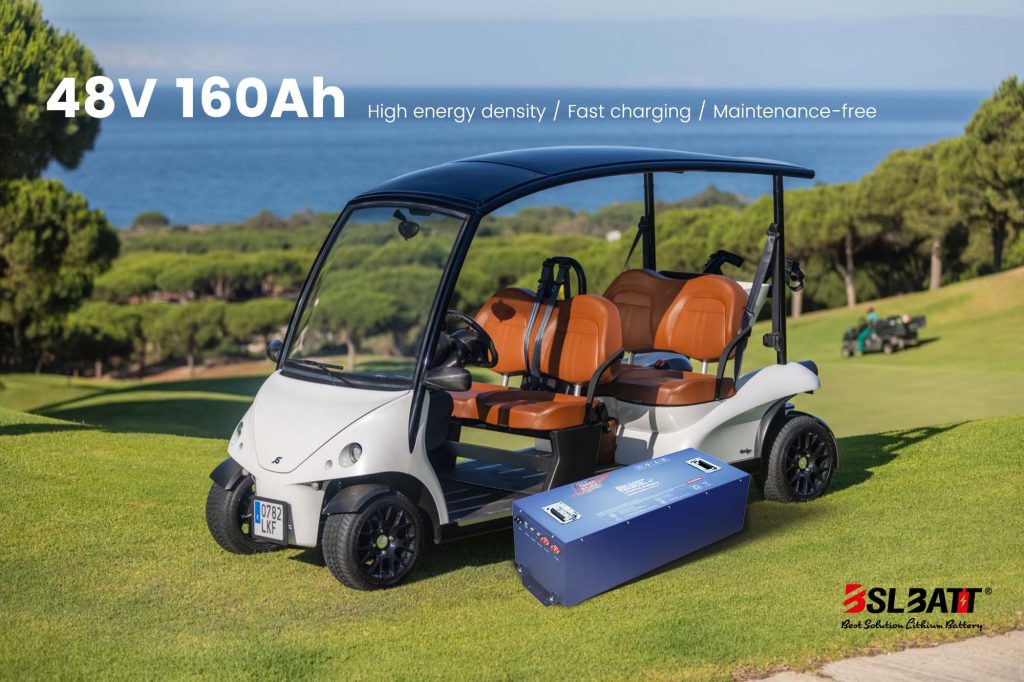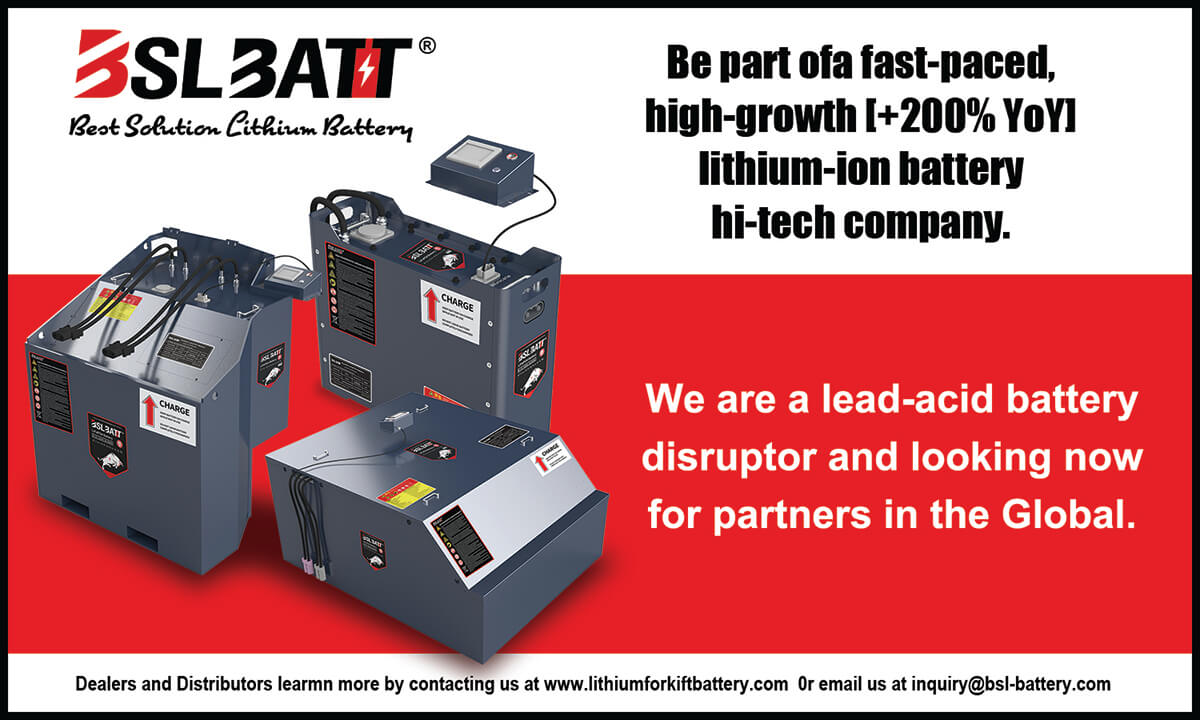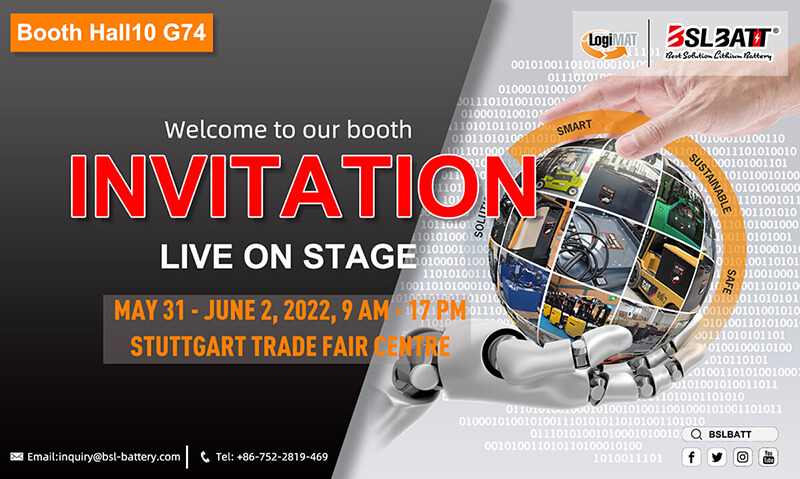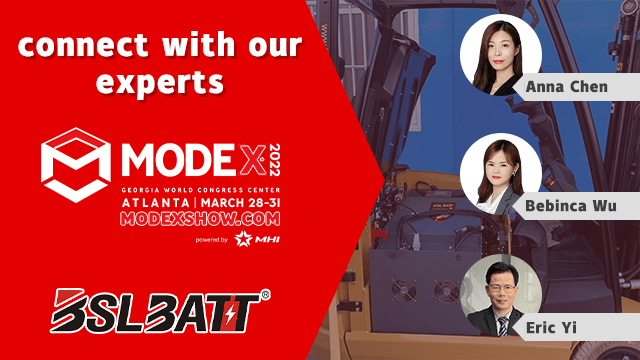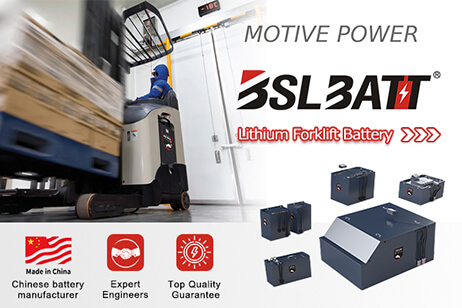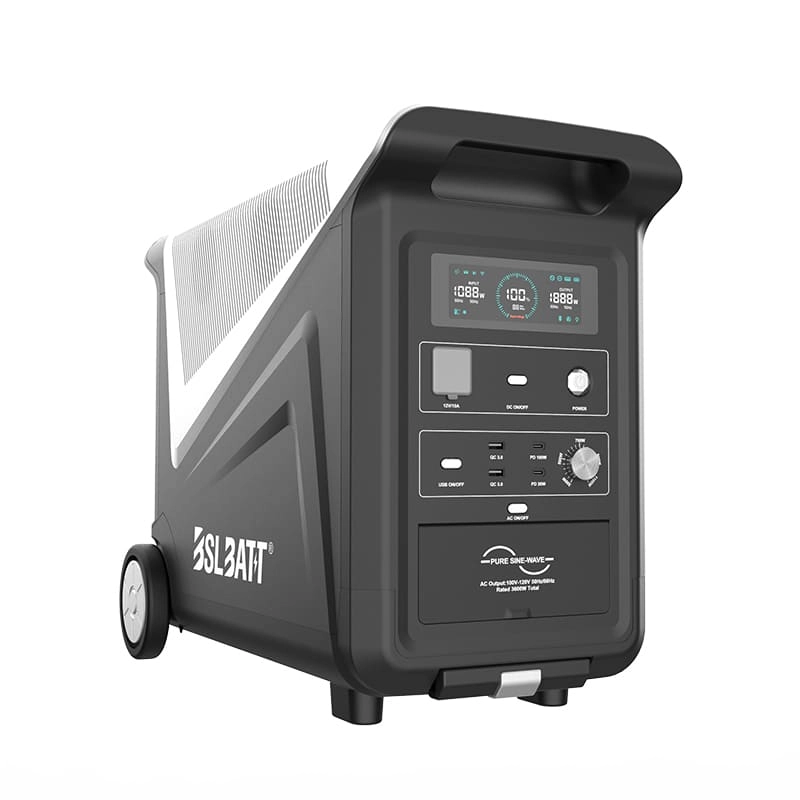
- China
- English
- Françai
- Español
- Deutsch
- Română
- العربية
- 한국어
- 日本語
- Italiano
- Português
- Gaeilge
- Dansk
- Čeština
- Русский
- Afrikaans
- Euskara
- Català
- Esperanto
- हिन्दी
- Ελληνικά
- Bahasa Melayu
- Polski
- Српски
- Kiswahili
- ภาษาไทย
- Tiếng Việt
- Türkçe
- Svenska
- Cymraeg
- Slovenčina
- Latviešu
- Malti
- Magyar
- Galego
- ગુજરાતી
- Eesti Keel
- বাংলা
- Shqip
- беларуская мова
- Nederlands
- Tagalog
- ქართული
- Íslenska
- Kreyòl Ayisyen
- Lietuvių
- Norsk
- slovenščina
- தமிழ்
- Українська
- ײִדיש
- اردو
- తెలుగు
- فارسی
- македонски
- ಕನ್ನಡ
- Bahasa Indonesia
- עברית
- Suomi
- Hrvatski
- Български
- Azerbaijani

Industry Application
Product Type
The Ultimate Guide to 48V Lithium Battery
As a leading lithium battery manufacturer in the industry, BSLBATT is committed to providing the latest insights and information on battery technology to professionals and customers worldwide. In this article, we will take an in-depth look at 48V lithium batteries, their manufacturing process, benefits, and applications, and guide how to choose and maintain these batteries. The growing demand for clean energy and the need for efficient energy storage solutions have led to the development of various battery technologies. 48V lithium batteries, in particular, have become increasingly popular due to their unique features and benefits.
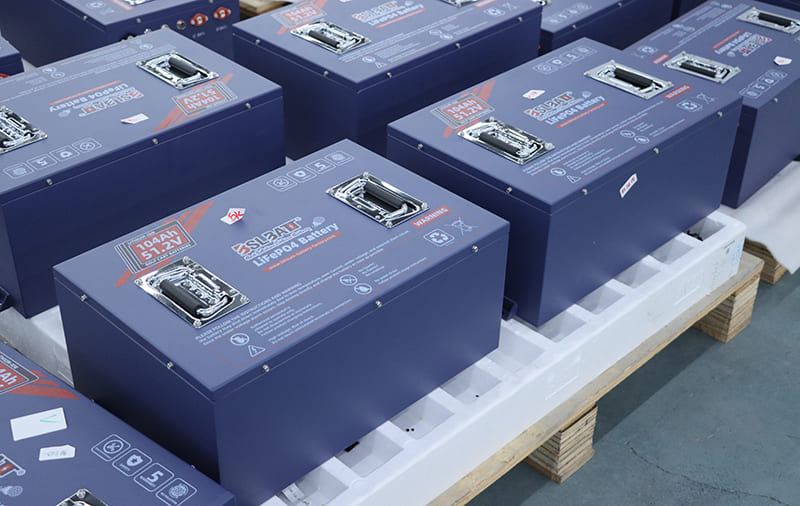
What is 48V Lithium Battery?
In the introduction, I briefly discussed the importance of 48V lithium batteries in today’s world. To further elaborate, it is essential to understand the role of lithium batteries in renewable energy storage and electric vehicles. As the world becomes more environmentally conscious, the demand for renewable energy storage and electric vehicles is increasing, and lithium batteries play a crucial role in both of these applications. Lithium batteries are the most commonly used type of rechargeable batteries in electric vehicles, as they provide high energy density and long cycle life. In renewable energy storage systems, lithium batteries are used to store excess energy generated from solar panels or wind turbines, which can be used during peak energy demand. Therefore, 48V lithium batteries are an integral component in promoting a greener and more sustainable world.
48V lithium-ion battery is a high-performance battery that is commonly used in a range of industrial applications. It is known for its high energy density, long lifespan, and fast charging times, making it an excellent choice for use in Low-speed powered vehicles (e.g. golf carts, sightseeing carts, sweepers, electric pickups), renewable energy storage systems(home energy storage, commercial and industrial energy storage), and backup power(Telecom base stations, UPS) applications. Compared to traditional lead-acid batteries, 48V lithium-ion batteries are more efficient, have a longer cycle life, and require less maintenance. This is due to the use of advanced lithium-ion technology, which provides higher energy density and better power output, enabling them to deliver more power in a smaller size and weight.
Types of 48V Lithium Batteries:
In this section, I discussed the different types of 48v lithium ion golf cart battery, including Lithium Iron Phosphate (LiFePO4), Lithium Nickel Manganese Cobalt Oxide (NMC), Lithium Titanate Oxide (LTO), Lithium Cobalt Oxide (LCO), and Lithium Manganese Oxide (LMO). While I briefly mentioned the advantages and disadvantages of each type, it is essential to provide a more in-depth explanation to meet the word count requirement.
For instance, LiFePO4 batteries are known for their safety features, long cycle life, and high energy density. These batteries are also more environmentally friendly compared to other types of lithium batteries. However, LiFePO4 batteries have a lower power density and higher cost compared to other types of lithium batteries.
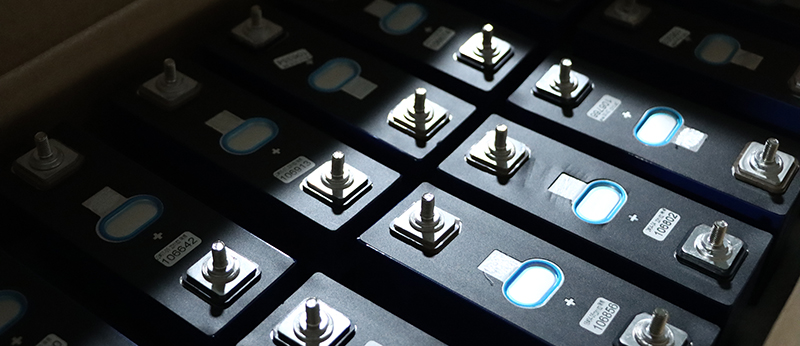
NMC batteries, on the other hand, offer a high energy density and fast charging times, making them an ideal choice for electric vehicles. They also have a longer lifespan compared to other types of lithium batteries. However, NMC batteries have a lower safety margin and are more prone to thermal runaway.
LTO batteries offer high power density and fast charging times, making them an ideal choice for transportation systems such as electric buses and electric trains. They also have a longer lifespan compared to other types of lithium batteries. However, LTO batteries have a lower energy density and are more expensive compared to other types of lithium batteries.
LCO batteries offer a high energy density, making them an ideal choice for portable electronic devices such as smartphones and laptops. However, they have a shorter lifespan compared to other types of lithium batteries and are more prone to thermal runaway.
LMO batteries offer a high energy density and long lifespan, making them an ideal choice for electric vehicles and energy storage systems. However, they have a lower power density compared to other types of lithium batteries.
| Property | Lithium Iron Phosphate (LiFePO4) | Lithium Nickel Manganese Cobalt Oxide (NMC) | Lithium Titanate Oxide (LTO) | Lithium Cobalt Oxide (LCO) | Lithium Manganese Oxide (LMO) |
| Energy Density | Moderate | High | Moderate | High | Moderate |
| Power Density | Moderate | High | High | High | Moderate |
| Safety | Very Safe | Safe | Very Safe | Less Safe | Safe |
| Cycle Life | Very High | High | High | Moderate | High |
| Charging Time | Long | Moderate | Short | Short | Moderate |
| Operating Temperature Range | Wide | Narrow | Wide | Narrow | Wide |
| Cost | Moderate | High | High | High | Moderate |
| Application Areas | Electric Vehicles, Renewable Energy Storage Systems, Backup Power Systems | Electric Vehicles, Portable Electronics, Power Tools | Electric Buses, Commercial Vehicles, Renewable Energy Storage Systems | Portable Electronics, Medical Devices | Electric Bicycles, Power Tools, Energy Storage Systems |
It is essential to understand the advantages and disadvantages of each type of 48V lithium battery to make an informed decision on which battery type is suitable for the specific application.
Benefits of Using a 48V Lithium Battery, Compare with 12V, 24V, 36V
Power Output:
One of the main advantages of using a 48V lithium-ion battery is its higher power output compared to lower voltage options. A 48V battery can deliver more power to electrical loads, making it suitable for applications that require more power. This is particularly important for electric vehicles, which require high power output to drive their motors. A 48V battery can deliver more power than a 12V, 24V, or 36V battery, allowing electric vehicles to achieve higher speeds and accelerate faster.
Efficiency:
Higher-voltage batteries are generally more efficient than lower-voltage batteries. This is because they can transmit the same amount of power over a longer distance with less energy loss. A 48V battery can transmit the same amount of power over a longer distance with less energy loss than a 12V battery. This means that less energy is wasted as heat, and more energy is available to power electrical loads. Higher efficiency also means that the battery can last longer between charges.
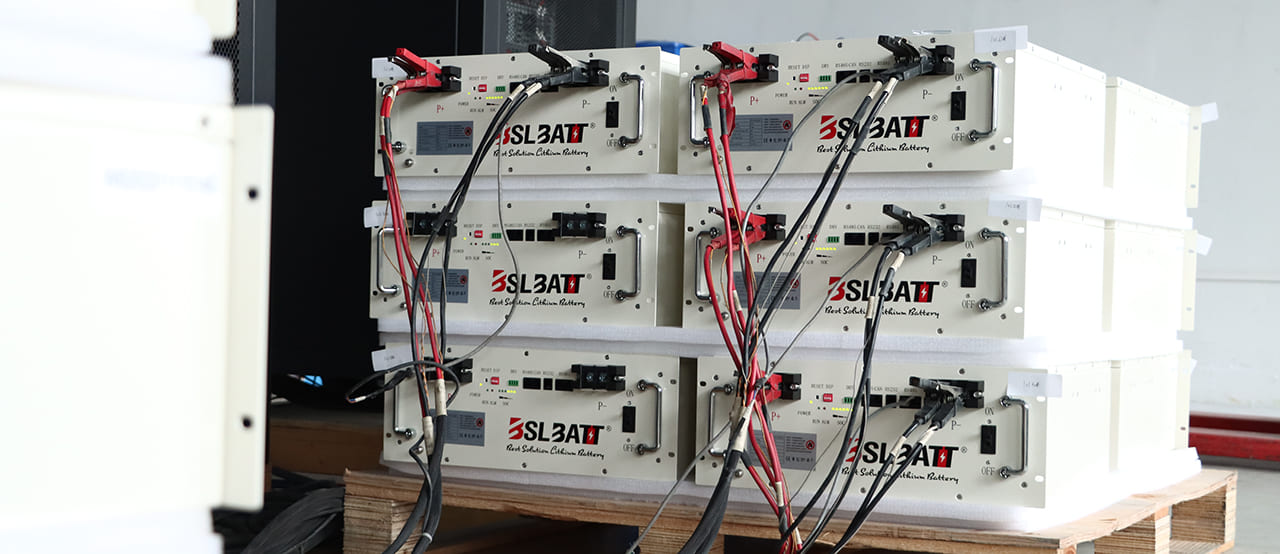
Charging Time:
Another advantage of using a 48V lithium-ion battery is its shorter charging time. A 48V battery can be charged faster than a lower-voltage battery of the same capacity. This is because higher-voltage batteries can handle higher charging currents without overheating or damaging the battery. This reduces the time it takes to charge the battery, which is particularly important for applications that require frequent charging, such as electric vehicles.
Size and Weight:
Using a 48V lithium-ion battery also allows for the use of thinner wires and smaller electrical components. This is because higher voltage batteries can transmit the same amount of power as lower voltage batteries using less current. As a result, thinner wires and smaller electrical components can be used, reducing the overall weight and cost of the system. This is particularly important for applications that require mobility, such as electric vehicles and portable electronics.
Lifespan:
Higher-voltage batteries generally have a longer lifespan than lower-voltage batteries. This is because higher voltage batteries can use thinner electrodes and separators, which reduces the amount of material used in the battery. As a result, the battery is less prone to degradation and can last longer than lower-voltage batteries. A longer lifespan means that the battery needs to be replaced less frequently, reducing the overall cost of ownership.
48V Lithium Battery BMS (Battery Management System)
When choosing a 48V lithium battery supplier, it’s important to ensure that they use a high-quality BMS in their batteries. A reliable BMS can help to ensure the safety and longevity of the battery, while a poor-quality BMS can lead to a reduced lifespan and potential safety hazards. When selecting a Battery Management System (BMS) for a 48V Lithium battery, battery manufacturers consider several factors to ensure the safe and reliable operation of the battery.
First, the BMS should be compatible with the chemistry and configuration of the 48V Lithium battery. Different battery chemistries may have different charging and discharging characteristics, and the BMS should be designed to match these characteristics to optimize the performance and lifespan of the battery.
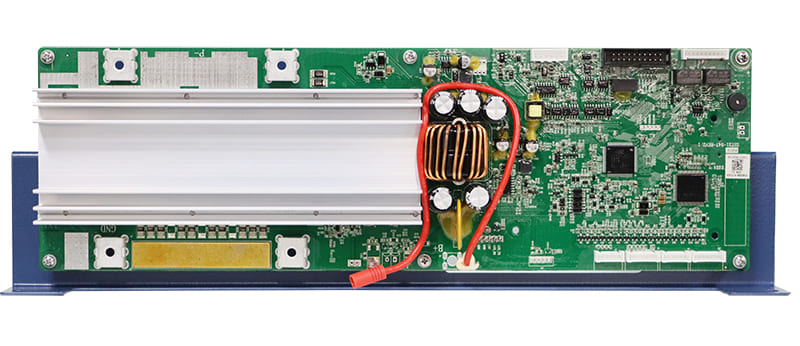
Second, the BMS should be able to monitor and control the voltage, current, and temperature of the battery cells. This information is critical to ensure that the battery is operating within safe limits and to prevent overcharging, over-discharging, and overheating.
Third, the BMS should be able to communicate with external devices, such as chargers, inverters, and monitoring systems, to enable efficient and safe operation of the battery system.
Fourth, the BMS should have robust safety features, such as overvoltage and Undervoltage protection, short circuit protection, and thermal management, to ensure that the battery is protected against potential hazards.
Finally, the BMS should be designed for easy installation and maintenance, with clear and user-friendly interfaces for monitoring and controlling the battery system.
Selecting the right BMS is critical to ensure the safe and reliable operation of a 48V Lithium battery system. Battery manufacturers should carefully evaluate the features and capabilities of different BMS options to select the one that best meets the requirements of their specific application.
The Application Area of the 48V Li-ion Battery
One of the main applications for 48V Li-ion batteries is in low-speed power vehicles (LSPs). This includes golf carts, touring cars, electric pickup trucks, etc. As electrification advances, automakers are increasingly turning to lithium-ion batteries to power their vehicles. 48V lithium-ion batteries provide the high power density needed to accelerate quickly and maintain high speeds, while also providing long distances on a single charge. In addition, 48V lithium-ion batteries can be recharged quickly, reducing downtime and making them ideal for vehicles that are in constant use. For example 48v lithium ion golf cart battery.
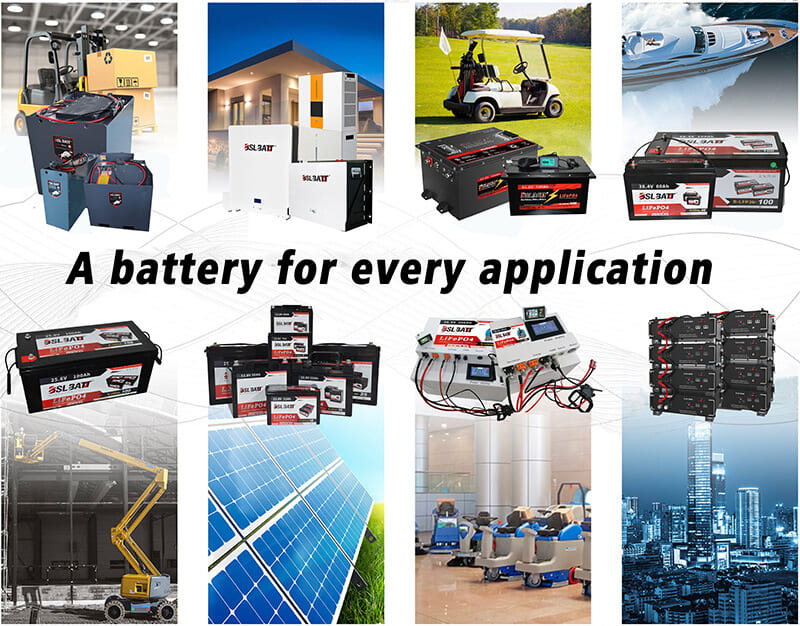
Another significant application area for 48V Li-ion batteries is in renewable energy storage systems. As more and more homes and businesses turn to renewable energy sources like solar or wind power, there is a growing need for efficient and reliable energy storage solutions. 48V Li-ion batteries are an ideal choice for this application because they can store a large amount of energy in a relatively small space. Additionally, they can be charged and discharged quickly, making them well-suited for use in grid-level energy storage systems.
48V Li-ion batteries are also used in backup power applications, providing reliable power during power outages. These batteries can be integrated with solar power systems or other renewable energy sources to provide a complete backup power solution.
Working with a Professional 48V Lithium Battery Manufacturer BSLBATT
Choosing a reliable supplier for 48V lithium batteries is crucial for any business or individual looking to purchase these batteries. BSLBATT is a reputable supplier that offers high-quality, reliable, and safe 48V lithium batteries that are manufactured to the highest industry standards. BSLBATT is committed to providing its customers with outstanding customer support and affordable pricing, making them an excellent choice for anyone looking for a 48V lithium battery supplier. Additionally, BSLBATT offers a range of customization options, allowing customers to tailor their battery solutions to their specific needs.
A Guide to Choosing the Best 48V Lithium Golf Cart Battery
Would it be worth investing in a 48V ...
10 Exciting Ways To Use Your 12V Lithium Batteries
Back in 2016 when BSLBATT first began designing what would become the first drop-in replacemen...
BSLBATT Battery Company Receives Bulk Orders from North American Customers
BSLBATT®, a China Forklift battery manufacturer specializing in the material handling indust...
Fun Find Friday: BSLBATT Battery is coming to another great LogiMAT 2022
MEET US! VETTER’S EXHIBITION YEAR 2022! LogiMAT in Stuttgart: SMART – SUSTAINABLE – SAF...
Looking for new Distributors and Dealers for BSL Lithium Batteries
BSLBATT battery is a fast-paced, high-growth (200% YoY ) hi-tech company that is leading the a...
BSLBATT to Participate at MODEX 2022 on March 28-31 in Atlanta, GA
BSLBATT is one of the largest developers, manufacturers, and integrators of lithium-ion batter...
What makes the BSLBATT the Superior Lithium Battery for your Motive Power needs?
Electric forklift and Floor Cleaning Machines owners who seek the ultimate performance will fi...






